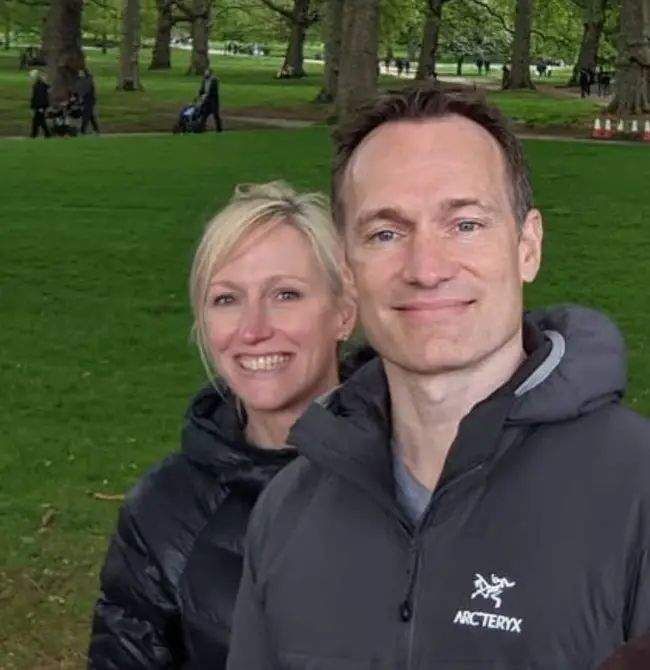The Lifeline: When to Question Your Diagnosis and Find a Second Expert
Receiving a serious medical diagnosis can feel like the ground has disappeared beneath your feet. In that vulnerable moment, when fear and uncertainty overwhelm rational thinking, the idea of questioning your doctor’s expertise might seem impossible. Yet that precise moment—when the stakes are highest—is exactly when seeking a second expert opinion becomes not just advisable, but potentially life-saving.
Medical errors remain a leading cause of death and disability, with diagnostic errors accounting for a significant portion. Studies reveal that diagnostic mistakes occur in approximately 10-15% of all patient encounters, with far-reaching consequences. When facing life-threatening conditions, particularly cancer, heart disease, or complex neurological issues, obtaining a cancer second opinion isn’t paranoia—it’s prudent healthcare management that could literally save your life.
The Reality of Diagnostic Uncertainty
Medicine is not an exact science. Despite incredible advances in technology and knowledge, diagnosis remains part art, part science. Two equally qualified physicians can examine the same patient, review identical test results, and reach different conclusions. This isn’t medical incompetence—it’s the inherent complexity of human biology and disease processes.
Interpreting Ambiguity: Many symptoms overlap across multiple conditions. Fatigue, weight loss, and pain could indicate dozens of different diagnoses ranging from benign to life-threatening. The path to correct diagnosis often involves ruling out possibilities, and different physicians may prioritize different diagnostic avenues.
Cognitive Biases: Physicians, like all humans, are susceptible to cognitive shortcuts and biases. “Anchoring bias” causes doctors to lock onto initial impressions. “Availability bias” makes recently seen conditions seem more likely. These unconscious patterns can lead well-intentioned physicians astray.
Experience Variations: A community hospital physician may see certain rare conditions once or twice in their career, while specialists at academic medical centers treat hundreds of similar cases. This experiential difference profoundly impacts diagnostic accuracy and treatment recommendations.
High-Stakes Situations Demanding Second Opinions
Certain medical situations create such high stakes that second opinions transition from optional to essential:
Cancer Diagnoses: When facing any cancer diagnosis, seeking an oncology second opinion provides critical validation of your diagnosis, staging accuracy, and treatment approach. Oncology is highly specialized—breast cancer specialists, lung cancer specialists, and hematologic oncologists all possess deep, specific expertise. The difference between generalized oncology care and subspecialized treatment can significantly impact survival rates and quality of life.
Cancer treatment has evolved rapidly, with immunotherapy, targeted therapies, and precision medicine revolutionizing approaches. A second opinion ensures you’re aware of cutting-edge treatments, clinical trial opportunities, and alternative protocols that might not be available at your initial care center.
Pathology Interpretation: When your diagnosis relies on pathology reports—biopsies, tissue samples, or cellular analysis—the pathologist’s interpretation becomes crucial. Pathology involves significant subjective judgment. Studies show that pathology second opinion reviews result in changed diagnoses in 10-20% of cases, with major diagnostic changes (that would alter treatment) occurring in 5-10% of cases.
These aren’t minor discrepancies—they’re the difference between aggressive chemotherapy and watchful waiting, between major surgery and conservative management. When your treatment plan hinges on pathology interpretation, having a second pathologist review your slides provides essential confirmation.
Recommended Aggressive Treatment: If your physician recommends removing an organ, extensive surgery, or aggressive chemotherapy with serious side effects, pause and seek validation. While sometimes these interventions are absolutely necessary, other times less aggressive approaches might be equally effective with fewer complications.
Terminal or Severe Prognosis: If told you have limited time to live or face permanent disability, you owe yourself confirmation from another expert. Medical history is filled with stories of patients given dire prognoses who recovered when second opinions revealed different diagnoses or overlooked treatment options.
Symptoms That Don’t Match Diagnosis: When your lived experience doesn’t align with your diagnosis—your symptoms feel different, they’re not responding to treatment as expected, or new symptoms emerge—trust your instincts and seek additional consultation.
How to Find the Right Second Opinion Specialist
Not all second opinions provide equal value. Strategic selection of your second opinion physician maximizes the benefit:
Seek Subspecialization: Don’t just find “another doctor”—find a specialist with extensive experience in your specific condition. If you have a rare cancer type, find an oncologist who specializes in that specific malignancy. If you have a complex neurological condition, seek a neurologist focusing on that particular disorder.
Different Institutions: Obtain your second opinion from a different hospital or medical center, preferably one with a strong reputation for treating your condition. Academic medical centers and specialized treatment facilities often have access to different technologies, protocols, and clinical trials.
Check Credentials and Experience: Research your second opinion physician’s training, board certifications, publication record, and patient outcomes. Physicians treating high volumes of your specific condition typically achieve better results than those who see it occasionally.
Consider Geographic Diversity: Different regions sometimes have different treatment philosophies. A second opinion from a geographically distant expert can expose you to approaches less common in your local medical community.
Utilize Online Platforms: Modern telemedicine enables access to world-class specialists regardless of location. Many leading medical institutions offer virtual second opinion services, allowing you to benefit from expertise at places like Mayo Clinic, Cleveland Clinic, or other renowned centers without traveling.
Preparing for Your Second Opinion Consultation
Maximize the value of your second opinion by thorough preparation:
Gather Complete Records: Collect all relevant medical records, test results, imaging studies on disc, pathology slides (not just reports), and documentation of previous treatments. Incomplete information leads to incomplete consultations.
Create a Timeline: Document when symptoms began, how they’ve progressed, what makes them better or worse, and how they impact your daily life. This narrative provides context beyond clinical data.
List All Questions: Write down everything you want to know. Don’t rely on memory during an appointment when emotions run high. Include questions about alternative treatments, success rates, potential complications, and whether the second physician would recommend the same approach for a family member.
Bring an Advocate: Take someone with you—a spouse, family member, or close friend. They can take notes, remember important details, and ask questions you might not think of when stressed.
Be Honest About Your Concerns: Clearly explain what about your initial diagnosis or treatment plan concerns you. Share your fears, priorities (cure vs. quality of life), and any religious or personal values that might influence treatment preferences.
What to Do When Opinions Conflict
Sometimes second opinions confirm your initial diagnosis and treatment plan, providing reassurance. Other times, opinions conflict, leaving you confused and anxious. When experts disagree:
Seek a Third Opinion: If two specialists provide contradictory recommendations, consider a third consultation—ideally from a physician at a premier medical center specializing in your condition.
Understand the Reasoning: Ask each physician to explain their rationale. Understanding why they reached different conclusions helps you evaluate which reasoning resonates with your situation and values.
Consider a Multidisciplinary Review: Some medical centers offer tumor boards or multidisciplinary conferences where teams of specialists collaboratively review complex cases. This approach combines expertise from surgery, medical oncology, radiation oncology, radiology, and pathology.
Trust Your Instincts: After gathering information and understanding your options, trust your intuition about which treatment path feels right for you. You must live with the consequences—your comfort with the decision matters enormously.
The Bottom Line
Questioning your diagnosis and seeking a second expert opinion isn’t about distrusting your physician—it’s about taking ownership of your healthcare during the most critical moments. When facing serious diagnoses, life-altering treatments, or outcomes that feel wrong, a second opinion can serve as your lifeline, providing confirmation, revealing overlooked options, or even correcting dangerous mistakes.
The emotional difficulty of challenging medical authority pales in comparison to the potential consequences of proceeding with incorrect diagnosis or suboptimal treatment. Your life, health, and wellbeing deserve the thoroughness, validation, and peace of mind that come from multiple expert perspectives.
Don’t let fear, guilt, or concern about offending your doctor prevent you from seeking the information you need to make the best possible decision about your health. The stakes are too high, and the potential benefits too significant. When it comes to serious medical diagnoses, a second opinion isn’t excessive caution—it’s essential due diligence. Your health, your future, and your life are worth it.
- The Lifeline: When to Question Your Diagnosis and Find a Second Expert
- This article provides general information about medical second opinions and should not replace personalized medical advice. Always consult with qualified healthcare professionals about your specific medical situation.
- Find a Second Expert
Related posts:
No related posts.





